
Regularly cleaning the lungs is essential. Lungs take in oxygen when we inhale and emit carbon dioxide when we exhale. As they never relax, keep them healthy.
Deep Breathing

Deep breathing improves lung capacity by increasing oxygen intake. This strengthens the lungs, clears airways, increases energy, and reduces stress.
- Lie flat on your back comfortably.
- Hands on your stomach at the base of your rib cage.
- Breathe in deeply through your nose while counting to 5, you can close your eyes.
- Hold your breath for 2 seconds; breathe out to a count of 5.
- Repeat 9 or 10 times each session.
- Do this daily 2 or 3 times.
Castor Oil Pack
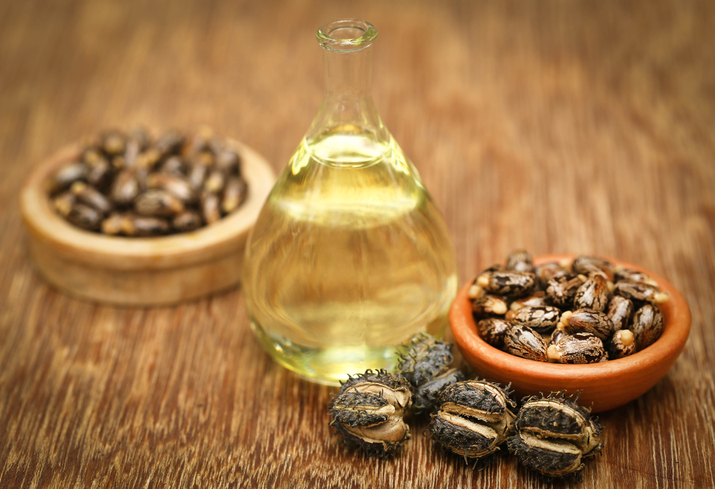
A DIY castor oil pack helps cleanse the lungs by pulling toxins from the lungs, uterus, digestive tract, and liver. This promotes lymphatic circulation and minimizes inflammation.
Make the pack using organic, cold-pressed castor oil.
- Soak 2 or 3 pieces of wool flannel in 1 cup of warm castor oil.
- Lie down on a large plastic sheet.
- Cover the lung areas by putting the soaked wool flannels over your chest and sides.
- Cover the flannels with a large plastic sheet.
- For 1 to 2 hours put a heating pad over the plastic sheet.
- Remove the packs and rinse off the oil with warm water.
- For at least a month, repeat 2 times a week.
RELATED: Breathe Easier: 10 Everyday Ways To Open Your Lungs
Oregano

Oregano contains lung-cleansing carvacrol and terpenes. The herb reduces lung inflammation and congestion and improves nasal airflow and respiratory health.
- Drink 2 cups of oregano tea daily if you have asthma or respiratory issues. You may prepare oregano tea by steeping it in boiling water for 5 minutes.
- To purify your lungs, add oregano oil to warm milk or tea and consume it daily.
- Cook using fresh or dried oregano.
Licorice
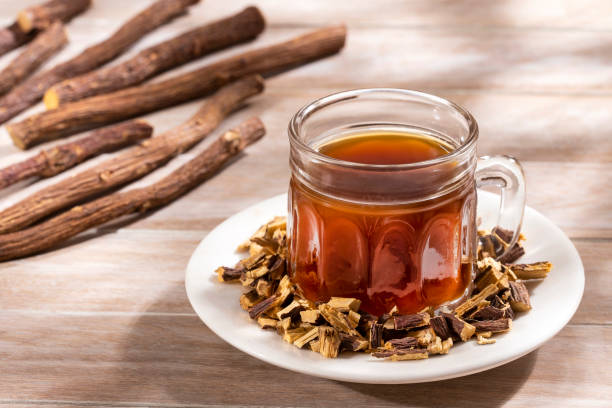
Licorice is another lung-cleansing herb. Antibacterial and antiviral qualities prevent and cure minor lung infections and minimize lung irritation from a sore throat, dry cough, or allergen exposure. Anti-inflammatory and antioxidant qualities reduce bronchial inflammation.
- If you have respiratory or lung difficulties, drink licorice root tea for a few days—1 teaspoon licorice powder in 1 cup of boiling water for 10 minutes.
- Mix 1/2 teaspoon licorice powder with honey and take twice daily for a few days.
Ginger

Ginger detoxifies the lungs. It boosts circulation. It includes chemical components that remove air contaminants from air passageways before they irritate the lungs.
- Strong lungs come from drinking 2 to 3 glasses of ginger tea daily. Boil 1 teaspoon of grated ginger in 1 or 1 1/2 cups of water. 5-10 minutes. Add lemon juice and honey to taste.
- Eat fresh ginger. Doctor-approved supplements may be taken.
Peppermint
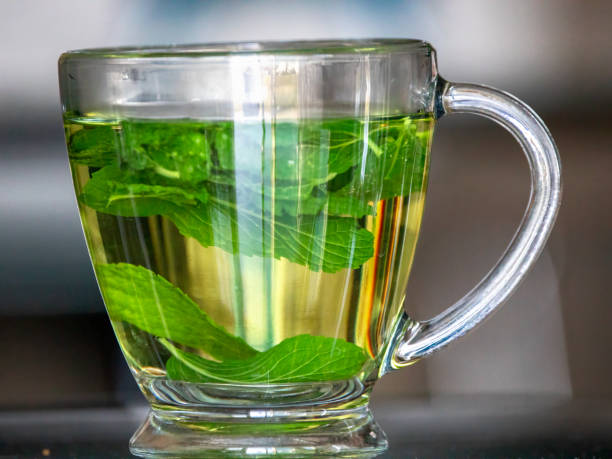
Peppermint is another natural bronchodilator. Peppermint and oil contain menthol, which relaxes respiratory muscles. This encourages easy breathing and clears congestion. Peppermint oil's anti-congestive, antispasmodic, and expectorant qualities help relax tracheas.
- Daily peppermint chewing strengthens lungs.
- Inhale peppermint oil-infused steam to alleviate congestion.
- Daily peppermint tea is also recommended. 1 teaspoon of dried peppermint leaves per cup of boiling water makes tea. 5-10 minutes covered.
Eucalyptus Oil

Eucalyptus oil's decongestant, antibacterial, and expectorant qualities benefit the lungs. This oil soothes coughs, congestion, and inflamed sinuses.
- Put 5 to 10 drops of eucalyptus essential oil into a pot of hot water.
- With a towel, cover your head while bending it over the pan to breathe in the steam.
- Inhale for 5 to 10 minutes, once or twice a day, to cleanse the lungs when congested.
Lobelia
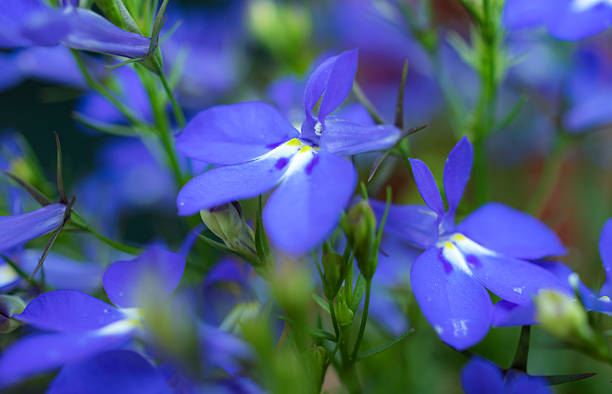
Lobelia is another lung-cleansing plant. Lobeline thins mucus to assist phlegm discharge. It promotes adrenaline, which relaxes airways for comfortable breathing.
- Boil 5-10 lobelia leaves and steam for 5 minutes. Do this daily for a few days to clear your lungs.
- This plant may be made into tea or tincture.
RELATED: 10 Natural Ways To Clean The Air In Your Home
Improving Air Quality

You can't control external pollution, but you can enhance interior air quality. Chemical-based cleaners, air fresheners, and other odors often pollute indoor air. Some lung irritants include carbon monoxide, radon gas, formaldehyde, benzene, ammonia, and trichloroethylene.
- Regularly dust and mop floors to eliminate filth.
- Use a vacuum with high suction, spinning brushes, and a decent filter.
- Minimize harsh and scented cleansers and use non-toxic cleaners.
- Use chemical-free aerosols.
- Use 2 houseplants per 100 square feet, such as fern, spider plant, peace lily, bamboo palm, aloe vera, English Ivy, and dracaena. These plants need 10-to-12-inch pots.
- Ventilate properly.
- Maintain humidity with a decent humidifier.
- Keep your home smoke-free.
Lung Cleansing Foods
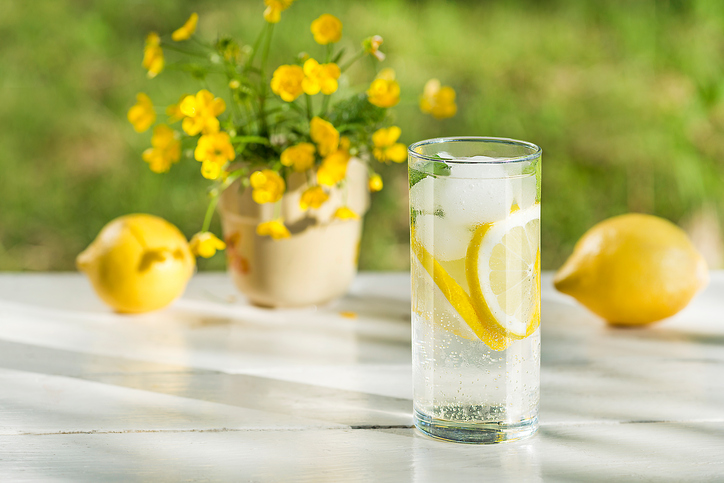
Diet affects lung health, so a nutritious diet boosts the immune system and promotes natural cleaning.
- Start the day with lemon water and stay hydrated all day. Hydration helps cleanse.
- These are vitamin C-rich: grapefruit, kiwi, bell peppers, oranges, tomatoes, strawberries, broccoli, and pineapples.
- Eat garlic, onion, cayenne pepper, ginger, oregano, turmeric, apples, and green tea.
- Lentils and black beans are folate-rich.
- Choose monounsaturated and polyunsaturated fats over trans- and saturated-fat meals.








